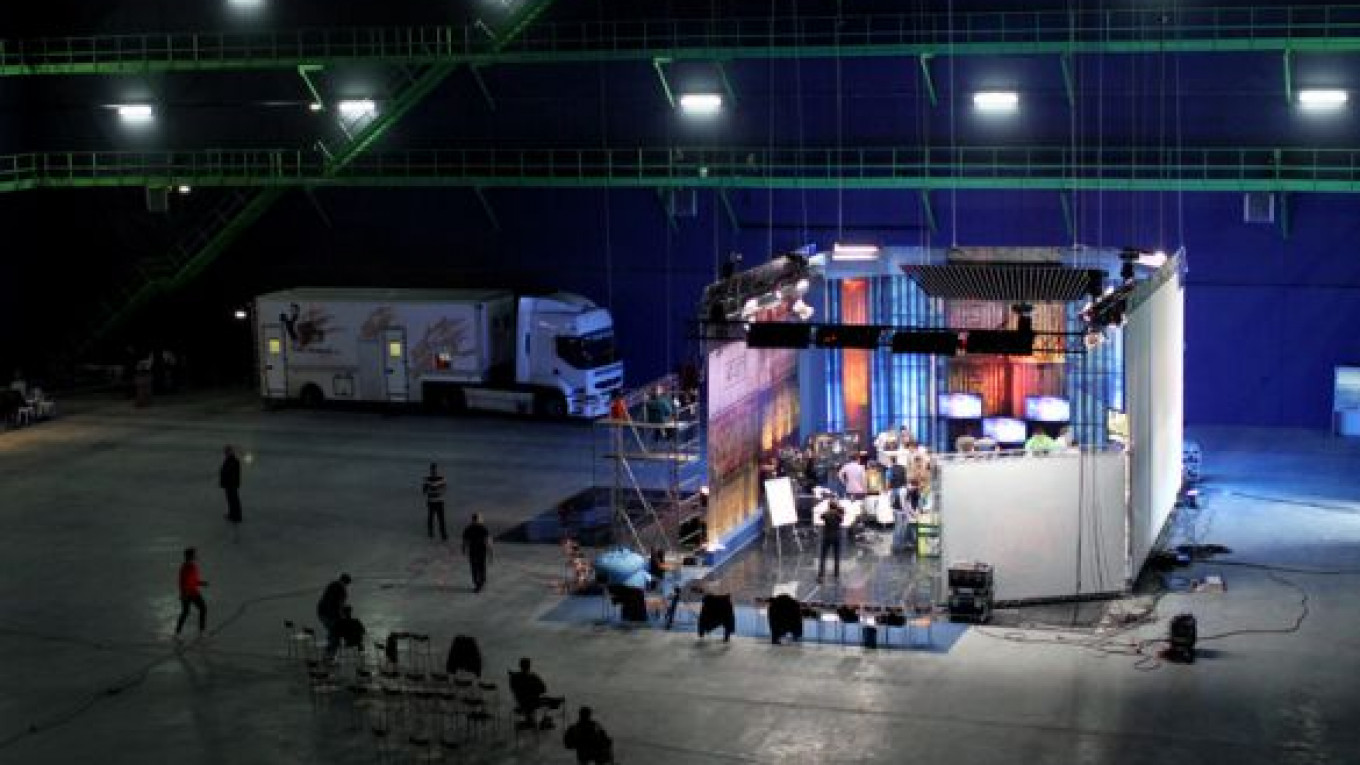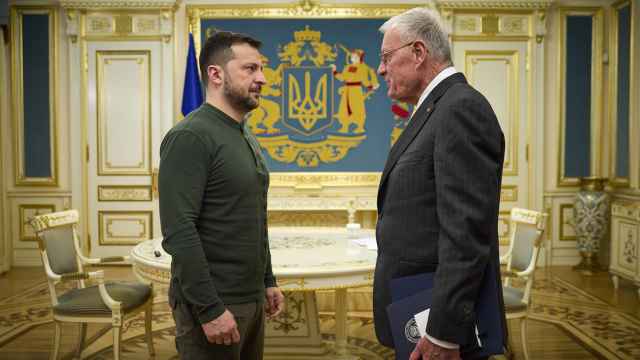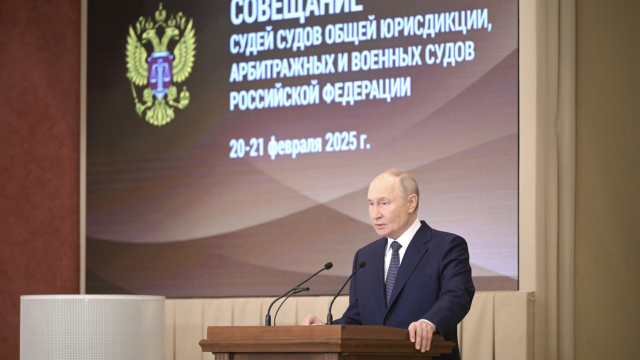Russian film studios, unlike their East European counterparts, have largely stayed out of sight of Hollywood directors seeking to save on production.
The companies never came close to emulating the Czech studio that landed a contract for helping make the $150 million "Casino Royale," one of the James Bond movies.
But now a compelling local offer may be at hand.
A company called Glavkino is looking to tap into the market by renting out its new $89-million purpose-built soundstages at a cut rate.
The goal isn't money, but knowledge it could glean from foreign directors and apply to its own film production, Glavkino chief and co-owner Ilya Bachurin said.
"The experience that Western partners could bring us would be a valuable and desirable thing for us," Bachurin, a former editor-in-chief of MTV Russia, said in a recent interview. "We are ready … to give unprecedented discounts — to put it simply, to charge less than they do in East Europe."
Part-owned by film director Fyodor Bondarchuk, the studio started renting out its soundstages in March and is looking to promote itself at the Moscow International Film Festival that opens Thursday.
What typically scares off potential customers is Moscow's expensive food and hotels, and perhaps the perception of low personal security, Mosfilm deputy director Vladimir Ryasov said.
Until now, the high cost of production services has also acted as a deterrent to foreign productions, said Anna Franklin, a cinema expert who is helping to promote Glavkino.
According to Ryasov, foreigners more often contact Mosfilm for post-production services such as recording music or sound.
"Apparently, this is especially costly in the West," he said.
In a recent case, an American composer aided by Mosfilm recorded a Moscow-based orchestra through a dedicated connection, Ryasov said.
Sometimes, foreign film crews rent cameras and lighting equipment, he added.
Reluctant to use Russian soundstages, foreign filmmakers do come to Russia for the location footage. The commercially disastrous "Police Academy: Mission to Moscow" was one of the first American-produced comedy films that gained permission to shoot scenes — including the Bolshoi Theater and Red Square — in Russia. Other movies included the box office hit "Mission Impossible — Ghost Protocol," the best selling movie starring Tom Cruise.
Russian World Studios director Yury Sapronov said the company "provided assistance" to Paramount in filming "Ghost Protocol." He didn't elaborate.
Sometimes the Russians go west. Oscar-winning film director Nikita Mikhalkov went to the Czech company, Barrandov Studios, to produce some of his latest movie, a sequel to "Burnt by the Sun." He shot the sinking of a dummy ship at one of the studio's exterior pools, in addition to other footage, Barrandov said in a statement at the time.
Mikhalkov's Trite Studio declined to comment for this article.
Barrandov boasts a 4,100 square-meter soundstage, which it describes as the largest in Europe. Sometimes dubbed the Hollywood of the East, the studio hosted production for such movies as "Bourne Identity," "Hellboy" and the "Chronicles of Narnia."
Barrandov spokeswoman Dusana Chrenekova declined to comment for this article Wednesday.
Glavkino's largest soundstage measures 3,100 square meters of clear-span space. According to the company, the compound near Ilinskoye village on Novorizhskoye Shosse runs state of the art equipment, including for making films in 3D.
Bachurin said Glavkino soundstages, about 10 minutes by car from the outer Moscow Ring Road, are so robust that their floor could hold a tank or railcar. The ceiling could bear a railcar hung from its center.
The other owners of the company are Channel One chief Konstantin Ernst, and bank UralSib and businessman Vitaly Golovachyov. With a half of the studio, Golovachyov is the largest shareholder.
Eyeing foreign filmmakers for experience, Glavkino will primarily target the local market for revenues, Bachurin said.
"It was built for the Russian film industry," he said bluntly.
The demand is there, and its main rival, Mosfilm, has a long waiting list, Bachurin said.
"Even having built Glavkino, we are not saturating the market fully," he said.
A Message from The Moscow Times:
Dear readers,
We are facing unprecedented challenges. Russia's Prosecutor General's Office has designated The Moscow Times as an "undesirable" organization, criminalizing our work and putting our staff at risk of prosecution. This follows our earlier unjust labeling as a "foreign agent."
These actions are direct attempts to silence independent journalism in Russia. The authorities claim our work "discredits the decisions of the Russian leadership." We see things differently: we strive to provide accurate, unbiased reporting on Russia.
We, the journalists of The Moscow Times, refuse to be silenced. But to continue our work, we need your help.
Your support, no matter how small, makes a world of difference. If you can, please support us monthly starting from just $2. It's quick to set up, and every contribution makes a significant impact.
By supporting The Moscow Times, you're defending open, independent journalism in the face of repression. Thank you for standing with us.
Remind me later.






